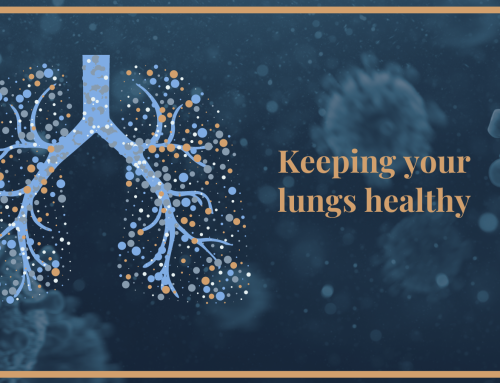[vc_row][vc_column][vc_column_text]Coughs.
They can be irritating – and very debilitating.
But what causes them?
A cough is primarily a reflex action to protect our airway. For example, if we are choking or if we have phlegm in our airways, our bodies naturally cough to clear it. But if we are coughing for another reason, it is likely not a protective one, and may be due to irritation – some of which can be caused by:
- dryness
- infections – a cough can remain even after other symptoms of a cold, throat infection or chest infection have gone
- environment
- stress and anxiety
- acid reflux – when acid from your stomach passes upwards and irritates the back of the throat
- certain medications – particularly Angiotensin-converting enzyme (ACE) inhibitors are commonly prescribed for high blood
pressure and heart failure - hay fever
- post nasal drip – this is when excess mucous from your sinuses drips down the back of your throat
- upper body muscle tension
Cycle of irritation
Unfortunately, you could find yourself getting into a cycle of irritation with a dry, tickly cough.
This is because breathing through your mouth can dry out the airways – it lacks a humidification centre like the nose, so this can lead to irritation of the upper airway, causing dryness and ‘tickliness’. A perpetual cycle of irritation can be set up with dryness, tickliness and subsequent dry coughing. The dry coughing then further exacerbates the irritation and the cycle begins…
If you feel you’ve developed a cycle of irritation then you need to be more aware of these coughs! You might find that coughing initially gives some immediate relief but it will in fact make the sensations that cause you to feel like you need to cough more pronounced in the end… which will exacerbate the cycle!
Some people develop a dry irritable chronic cough which may need the input of a respiratory physiotherapist to solve.
What can you do about managing a dry tickly cough?
Breaking the pattern of your coughing cycle is key. If you’re struggling with a sore, tickly, tight, sticky or lumpy throat you may want to try some of the following:
- Be mindful in your approach. Think before you cough – you could try to clear the feeling but you should consciously make the decision not to.
- Pause. This is especially important if you’re talking when the feeling arises. Stop a moment to give yourself time.
- Breathe through your nose. Nasal breathing reduces the irritating effect on the throat.
- Swallow. Do this firmly whilst holding your tongue between your lips. It may feel like it takes extra effort but it’s worth it!
- Have a drink. You’ll find that a couple of sips of water then swallowing firmly can help. You should aim to sip water frequently throughout the day, ideally every 15 minutes or so to keep your throat moist.
- Chew some gum. Or you could try sucking a sugar free non-medicated lozenge.
- Lubricate the larynx. You can do this via direct steam vapour inhalation.
- Distract yourself. This is to stop thinking about the need to cough until the feeling passes. Go get yourself a drink, sing a song, count to 10 – anything that will take your mind off coughing temporarily.
- Avoid caffeine and alcohol. This is because they can dry the throat out.
Think you’d like a little more help?
That’s where a respiratory physiotherapist comes in!
Respiratory physio helps to correct any abnormal breathing patterns that may be worsening symptoms, and also offer guidance about easing factors. Speech and language therapists are also extremely helpful in targeting relaxation and correct use of the larynx and voice, and often form a key role in these patient’s long term management.
If you’d like advice on how to manage your own dry, tickly cough, please get in touch via hello@airphysiotherapy.co.uk.
[/vc_column_text][/vc_column][/vc_row]





